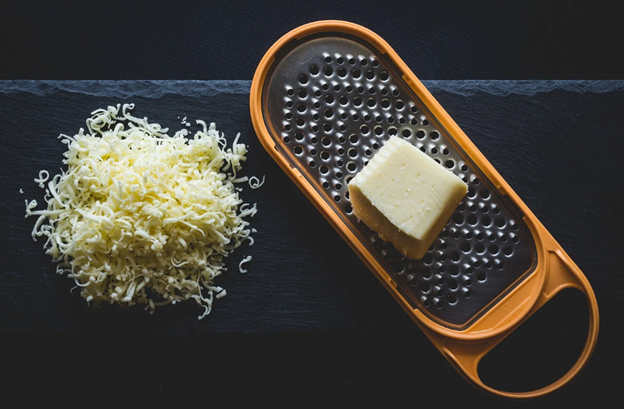Cheese is one of the most versatile ingredients in any commercial kitchen, but it’s also one of the easiest to waste. It’s simply because we don’t know how to store it properly.
In this article, we’ll explore smart storage tips, freezing hacks, and creative recipes to ensure that every bit of cheese finds its way to a plate, not the trash!
Store Properly
Cheeses deteriorate in quality, lose their flavour and become stale when not kept in the right conditions.
Soft cheeses are the most likely to get spoiled quickly because they are more moist than hard cheeses.
Therefore, store your cheese in the right way to prolong its shelf life. Fold and wrap the exposed cheese in cheesecloth, waxed paper, or in airtight containers and keep them in a matter of allowing it to breathe.
For hard cheeses, you can also use parchment paper. Do not use plastic wraps because they can trap the moisture and cause the mould to grow.
You can avoid this hassle by buying cheese products with long shelf and good packaging from a reliable supplier. You can just put cheese in the freezer and use it as needed.
Check Inventory Regularly
A lot of times, our food becomes a waste when we lose track of expiration dates. So, always be mindful of the “use by” or “best before date” and monitor your stocks. While some cheese can last up to six months, some variants have a much shorter shelf life.
According to Dairy Food Safety Victoria, hard and semi-hard cheeses can last from several weeks to months, whereas the ricotta, cottage, and cream cheese usually remain fresh for only 1–2 weeks. To minimise waste, use the FIFO (First-in, First-Out) method to consume the oldest stock first.
Now, can you eat cheese past the expiry date? Well, Dairysafe has mentioned that it may be safe to eat foods beyond their best-before date, but you should never consume past their use-by date for safety reasons.
Menu Planning
Proper planning is important to prevent cheese waste in food service operations. Generally, oversupply often leads to spoilage. That’s why it is important to plan your menu, estimate demand accurately, and order cheese products accurately based on what you need.
You could also use food cost calculators to balance your inventory with demand.
Repurpose your Leftover Cheese
Leftovers don’t always have to go to waste. You have the chance to get creative by making dishes that are different from your regular menu using leftover cheese.
Repurposing leftover cheese not only helps reduce waste, but can also lead to exciting new dishes for your specials menu.
The special menu gives chefs the flexibility to experiment with different flavour combinations while keeping your inventory streamlined.
In the end, as long as you practice proper storage, smartly handle inventory, and repurposing your leftover cheese, reducing cheese waste becomes effortless. If you find yourself with an excess of cheese and can’t consume it all on your own, consider sharing it with loved ones or donating it to a food bank to avoid waste.

